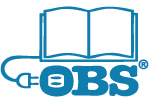Meme Machinery 101:
The Evolution of a University Press Marketplace”
by Laura Fillmore
President, Open Book Systems (OBS)
Presented to AAUP Annual Meeting
at Snowbird
May 24, 1996
Excerpted from http://archives.obs-us.com/obs/english/papers/mememach.htm
Copyright © 1996 by Laura Fillmore; written permission required to reprint.
Coming back to the Wasatch mountains at Snowbird is a welcome pilgrimage for me, coming back after three years out there in the world of the .coms. During this time …sometimes I have felt like a .org in .com’s clothing. I don’t think these twin directions are too different from the situation of the University Presses find themselves in today, charged both with disseminating knowledge far and wide, while also keeping careful track of finances. The AAUP home page offers some guidance on this twin mission of education and business:
“It is one of the noblest duties of a university to advance knowledge,” wrote Daniel Coit Gilman, the first president of The Johns Hopkins University, in establishing his university’s press, “and to diffuse it not merely among those who can attend the daily lectures– but far and wide.” And sure enough, university press books have been published widely and well; of the approximately 50,000 books published in the United States in 1993, roughly 8,000, or 16 percent, were AAUP member titles. These books, however, accounted for less than 2 percent of the publishing industry’s total annual sales for that year. Perhaps that explains the comment made in ” What Is a University Press?” by Sheldon Meyer and Leslie Phillabaum: “The single greatest problem facing university presses is financing…”
[The online] commercially viable publishing medium may offer new challenges and new income streams to university presses…[coming] from a closer alliance between the presses and their respective universities…
Search engines are in effect publishing the web back to the web audience in a filtered and massively customized fashion. By categorizing and rating web sites, and interspersing appropriate ads, they are publishing, and hiring publishing people to work for them–at salaries few publishers, especially university presses, could afford to pay….
So the Marketplace is open, the Meme Machine is built. And what do the university presses, and more specifically, the universities standing *behind* the university presses, have to put on the [online] shelves, besides the existing books and journals of the University Presses?
When viewing publications as products, with that focus on copy protection, publishers tend to experiment less than, say, a company like Ragu spaghetti sauce, which will teach you Italian, give you recipes, offer you stories from the old country. Instead, traditional publishers frequently try to retrofit an old and tangible business model on the new marketplace and today’s “meme machine.”
…University Presses should think: How do we supply our content to this meme machine; how do we effectively identify our audience and customize our content (and the online content of our respective universities) so we can begin to buy and sell ideas in the kinetic online marketplace? The technological aspects are not the issue any more…. The hardest challenge involves the landscape of the imagination, not the terrain of a circuit board….The universities are havens for reliable content, and are linked to regularly for that purpose ….
Readers and users respond to a site that responds to them. People use sites that enable them to get their work –or their play – done… It is an enabling medium for the work of publishing to get done, among many people working on the same problem from many different places on the globe.
Online publishing concerns PROCESS, concerns the evolution of ideas, and the meme machine represents a new kind of “difference engine” — a difference engine which can measure the difference between an original idea (or “Uhr Meme”) and its progeny (Sub Memes). Using this Meme Machine, which might be trained to measure degree of change, or degree of difference in an Uhr idea, we can offer custom access to ideas and information to people — different versions of the same book for different people. Such customization can happen today, using today’s tools. True online publishing means building and maintaining a community of mind. …
There are of course collaborations possible. The new breed of publishers, the powerful search engines and browser companies and phone giants, may come knocking at the door looking to license content, authentic university content. Surely, that’s making money from online publishing, right? … Making money through online publishing means building on and adapting existing strengths, and supplementing existing business. It means publishing the very processes of publishing, the skills that define the high quality of university press publications. There exist today new opportunities on the web for university presses as authenticators, verifiers, and organizers of the web’s information. These opportunities exist especially now, as commercialization gluts the content channels of the web, and people begin to welcome quality and authentic information — and are now willing to pay for it….
Copyright © 1995 by Laura Fillmore; written permission required to reprint. info-at-obs.com
